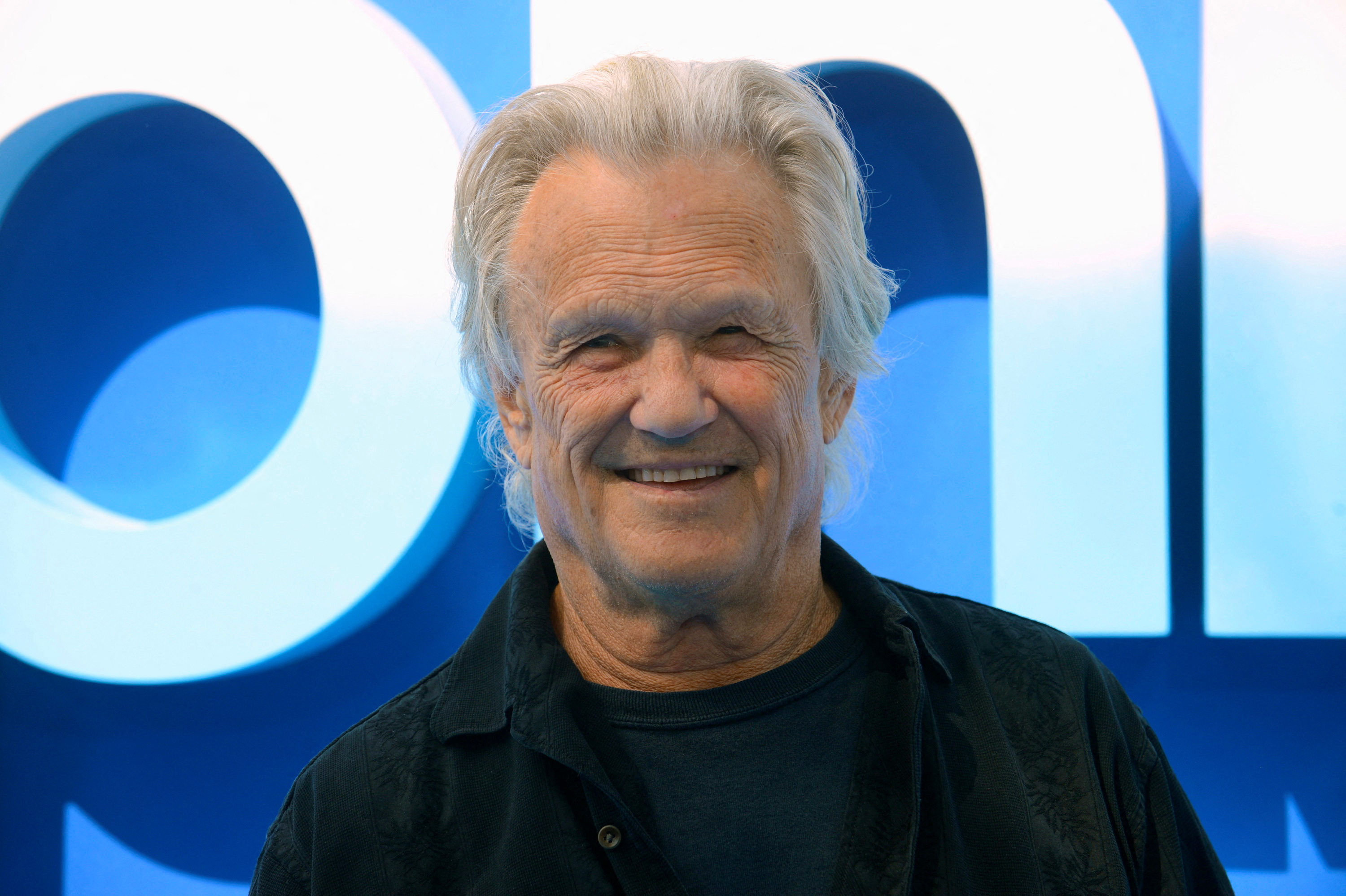
Kris Kristofferson, who became one of the most influential American singer-songwriters of his time with works such as “Me and Bobby McGee,” as well as becoming a successful actor, died Saturday at the age of 88, according to a family statement.
Kristofferson had been suffering from memory loss since he was in his 70s. A family spokesperson said in a statement that Kristofferson died peacefully at his home in Maui, Hawaii, surrounded by family, but a cause of death was not listed.
Kristofferson was a Renaissance man – an athlete with a poet’s sensibilities, a former Army officer and helicopter pilot, a Rhodes scholar who took a job as a janitor in what turned out to be a brilliant career move.
Kristofferson first established himself in the music world as a songwriter in the country music capital of Nashville – writing hits such as the Grammy-winning “Help Me Make It Through the Night,” “For the Good Times,” and one-time girlfriend Janis Joplin’s plaintive No. 1 hit, “Me and Bobby McGee.”
In the early 1970s he became well-known as a performer with a rumbling, unpolished baritone, as well as an in-demand actor, notably opposite Barbra Streisand in “A Star Is Born,” one of the most popular films of 1976.
Kristofferson was born in Brownsville, Texas, on June 22, 1936, and moved frequently because his father was a general in the Air Force. After graduating from Pomona College in California, where he played football and rugby, Kristofferson attended Oxford University on a Rhodes scholarship and then fulfilled the family tradition by joining the Army.
He went through the Army’s elite Ranger School, learned to pilot helicopters and reached the rank of captain. In 1965 Kristofferson was offered a position teaching English – he was enthralled by the works of poet William Blake – at the U.S. Military Academy in West Point, New York, but he turned it down in order to head to Nashville.
Kristofferson became a janitor at the Columbia Records studio because it would give him a chance to offer his songs to the big-name stars recording there. He also worked as a helicopter pilot ferrying workers between Louisiana oilfields and offshore drilling rigs.
During that time Kristofferson wrote some of his most memorable songs, including “Help Me Make It Through the Night,” which he said he penned atop an oil platform.
His most audacious song pitch came when he landed his helicopter on Johnny Cash’s lawn – although he denied Cash’s version of him climbing out of the cockpit with an audio tape in one hand and a beer in the other. Cash would later have a No. 1 hit with Kristofferson’s “Sunday Morning Comin’ Down” lament.
“NOTHING LEFT TO LOSE”
Kristofferson’s best songs were filled with seekers, wastrels and broken souls trying to find love, redemption or relief from the hangover that life had given them. The broken-hearted narrator of “Bobby McGee,” a song Kristofferson said was inspired by the Federico Fellini film “La Strada,” summed it up with the line, “Freedom’s just another word for nothing left to lose.”
“Kris brought (country music) kind of from the dark ages up to the present-day time, made it acceptable and brought great lyrics – I mean, the best possible lyrics,” Willie Nelson, an early role model for Kristofferson, told CBS’s “60 Minutes” in a 1999 interview. “Simple but profound.”
Kristofferson recorded four albums with Rita Coolidge, the second of his three wives, in the 1970s and joined Nelson, Cash and Waylon Jennings in the country music super group the Highwaymen in the 1980s and ’90s.
Kristofferson’s rugged good looks led to roles in movies such as “Cisco Pike,” “Pat Garrett & Billy the Kid,” “The Sailor Who Fell from Grace with the Sea,” “Convoy,” “Heaven’s Gate,” “Lone Star” and “Blade.”
Kristofferson lived hard during his heyday. There was a long line of girlfriends and performances he could not remember because he was drunk. He gave up drinking – but not marijuana – when a doctor told him he was killing himself.
“It was fun,” Kristofferson told “60 Minutes.” “It was the way that I thought an artist was supposed to live. I always agreed with Blake when he said that the road of excess leads to the palace of wisdom. … I think God protects fools and songwriters.”
After his initial stardom, Kristofferson took on causes such as the United Farm Workers and spoke out against U.S. government involvement in Nicaragua and El Salvador in the 1980s.
Kristofferson began experiencing debilitating memory loss in his mid-70s and his performances suffered for it. Doctors told him it appeared to be the onset of Alzheimer’s disease or dementia, possibly brought on by blows to the head while boxing and playing football and rugby in his younger days.
But in 2016, his wife, Lisa, told Rolling Stone magazine that Kristofferson had been diagnosed with Lyme disease, which can cause memory problems, and that after treatment and stopping Alzheimer’s medication, his memory began to return partially.
Kristofferson kept active with a 2016 tour that included performances with Nelson and stops in Europe. That year he also marked his 80th birthday by releasing “The Cedar Creek Sessions,” an album featuring live versions of his best-known songs.
Kristofferson and his third wife, Lisa, whom he married in 1983, lived on the Hawaiian island of Maui for more than 30 years. He had eight children.




